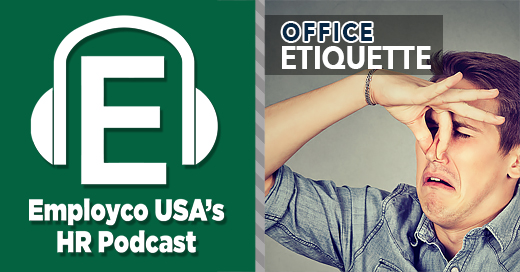Employment expert weighs in on the most common illegal questions interviewees face
 Previous research has revealed that in 1 in 5 employers have asked illegal questions during interviews. And, a recent study led by The Associated Press and CNBC found that many job interview candidates say that they have still been asked inappropriate (and illegal) questions about things such as their age and intention to have children.
Previous research has revealed that in 1 in 5 employers have asked illegal questions during interviews. And, a recent study led by The Associated Press and CNBC found that many job interview candidates say that they have still been asked inappropriate (and illegal) questions about things such as their age and intention to have children.
Rob Wilson, human resources expert and President of Employco USA (a Chicago-based employment solutions firm), says, “The reality is that many employers and hiring managers are asking questions that are either blatantly illegal or just hovering near that line. Yet I think it’s important to note that these people are not willfully thumbing their nose at the law, but that they lack the training and the knowledge required to handle interviews in a professional and ethical manner.”
Not to mention, says Wilson, the laws which regulate job interview questions are ever-changing. Questions which used to be considered par-for-the-course, such as questions about a person’s criminal background, could soon be against the law.
“People in many states are working to keep questions about an interview candidate’s criminal history out of the job interview process all together,” says Wilson. “They view these questions as discriminatory and depending on where you live, questions about a person’s criminal background have already been removed from job applications.”
So, what other questions are off the table when it comes to a job interview?
Wilson says, “Questions about a person’s age and marital status are no-go’s. And, while you can ask about any vacations or traveling plans a person has in the future, you cannot ask about their intention to have children…even if you see a visible baby bump! Additionally, you cannot inquire about a person’s religious or political beliefs.”
Employment expert Rob Wilson also adds that in many cases, asking about a person’s salary history could also be frowned upon. “There is a movement to remove questions about salary history from the interview process. Proponents say that this could help to repair the gender pay gap as well as racial pay gaps.”
For more on this topic, please contact Rob Wilson at rwilson@thewilsoncompanies.com.
 In the heels of the recent tragedies of Kate Spade and Anthony Bourdain, many employers might wonder how they can best support their employees and colleagues who might be struggling with depression and suicidal thoughts. This is a valid concern, as
In the heels of the recent tragedies of Kate Spade and Anthony Bourdain, many employers might wonder how they can best support their employees and colleagues who might be struggling with depression and suicidal thoughts. This is a valid concern, as 


 Last week, California
Last week, California  Several cities and states have banned the infamous “salary history” question from the interview process, including California, Delaware, Massachusetts, New York City, New Orleans, and many more. But, why is this question being banned, and what do employers need to know in order to protect themselves?
Several cities and states have banned the infamous “salary history” question from the interview process, including California, Delaware, Massachusetts, New York City, New Orleans, and many more. But, why is this question being banned, and what do employers need to know in order to protect themselves? A new survey of 2,000 employees has revealed that 100% of people say that their coworkers are annoying. Simply put: We all have a coworker that gets on our last nerve. The most annoying behaviors in the workplace include: loudness, gossip, bathroom/eating habits, and email/meeting behavior.
A new survey of 2,000 employees has revealed that 100% of people say that their coworkers are annoying. Simply put: We all have a coworker that gets on our last nerve. The most annoying behaviors in the workplace include: loudness, gossip, bathroom/eating habits, and email/meeting behavior.

